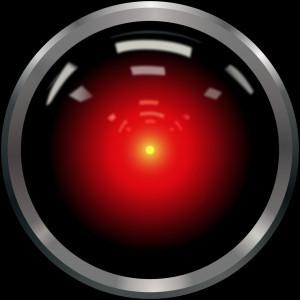Does the human presence in space lead to irreversible physical and psychological consequences?
We will hear about a certain Peter Harness, an English screenwriter, for a long time because those who have what it takes, sooner or later, manage to emerge and his creation "Constellation" is destined to be one of the best science fiction TV series ever conceived and produced.
Based on a decidedly high-level cast, from the protagonist the Swedish Noomi Rapace (one of my favorite actresses) to Jonathan Banks (those who have seen the series “Breaking Bad” should remember this) , from James D'Arcy ("Cloud Atlas", "Jupiter, the fate of the Universe", "Dunkirk", "The Snowman" to "Oppenheimer") to the veteran Barbara Sukowa up to little Rosie Coleman ( twelve years old at the time of filming), Herness avails itself of the work of three directors to direct the eight episodes: Michelle MacLaren, Oliver Hirschbiegel and Joseph Cedar, all experts in the serial sector.
The narrative scheme is always the same: where the previous episode ends the next one begins and the episodes last on average 55 minutes.
The series has a great merit, that of maintaining the level of mystery from start to finish, never boring the viewer.
It is a story that takes place in the present day and whose main protagonist is the Swedish astronaut Johanna Ericsson (called simply Jo by everyone) who is one of the crew members of the famous international space station ISS in permanent orbit around the Earth.
The crew deals with various things including carrying out experiments in zero gravity and Jo, taking advantage of the daily connection with her family (husband Magnus played by D'Arcy and daughter Alice played by Coleman), shows her daughter the activities that are taking place at that moment including one in particular carried out by Commander Paul Lancaster (played by William Catlet).
Alice is fascinated by the environment in which her mother has lived for months and although she is proud of she really wants her mother to return home and, obviously, this feeling is shared by Jo.
Despite the ISS orbiting at 400 km above sea level, mother and daughter seem closer than ever and although we still have to wait two and a half months to return home, just seeing each other via remote contact makes both of them calm and happy.
All' Suddenly, however, something is happening, the collision alarm is triggered inside the ISS and the depressurization causes a very serious accident for Commander Paul.
Amid the general chaos, a fire which, fortunately, is put out but Paul is in very serious condition and risks bleeding to death.
In the meantime, once the pressure has been restored inside the station, it is necessary to go and check the damage and therefore if on the one hand the rest of the crew decides to operate on Paul, establishing that the only possibility of salvation is to amputate his arm, Jo (in the meantime having become Commander in Paul's place) must necessarily go out and understand what has happened...
There are several severed cables from which oxygen is obviously leaking but there are still other parts of the station that need to be examined…
Since the oxygen is decreasing hour by hour, Jo informs the ESA (European Space Agency) that the ISS is now gone and that it is advisable to abandon the station otherwise everyone will die.
In the meantime, however, the operation performed on Paul did not help to save him and therefore the crew remains in 4 but of the two Russian-made escape capsules, only one is efficient while the other suffered damage in the impact and each capsule can carry up to 3 astronauts…
Since Jo is the Commander, touch it is up to her to stay and although the other members do not agree, in the end they are forced to obey orders and therefore they detach from the ISS and begin the re-entry procedure.
Left alone with Paul's corpse, Jo seems to be condemned to certain death but the ESA informs her that if she replaces the capsule's batteries with those found in a particular module of the station, the capsule should work allowing her to abandon the ISS.
The problem is that there are less than 15 hours until the oxygen in the station runs out and Jo has calculated that to take a battery, bring it into the capsule and connect it will take about two hours and the batteries to be connected are six, will she make it?
Jo is in the throes of despair and although she begins to replace the first two batteries, the increasingly less oxygen available makes her weak and memories mix with reality...
Moreover, when the station is not illuminated by the Sun, there is no electricity and therefore no heat, no communications and no oxygen: it must necessarily stop but, in the meantime, time passes...
This is only the incipit of a complex, extraordinarily fascinating story, with broad philosophical and scientific repercussions.
Although I have always considered “Dark” a great science fiction series , “Constellation” rises head and shoulders above it and I consider watching it an indispensable pleasure.
Dedicate a few evenings to it and you won't regret it.
<1 >
The final rating is 9.5 only because they planned a second season otherwise the stars would have been all lit.







